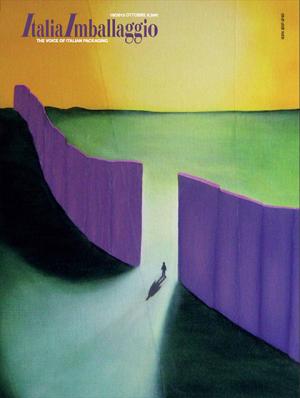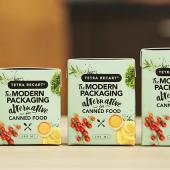The future has never been so present*

Editorial by Stefano Lavorini.
Let’s take stock of the situation. One thing is certain, or at least should be: today, as in the past, there is no unique packaging solution which is better than all the others.
It may appear obvious, but we find ourselves having to keep on repeating it, and so we need to learn how to communicate this fact more clearly to consumers, but also to insiders and institutional representatives.
Equally obvious is the fact that every ideologically-driven simplification which has nothing or little to do with reality ends up undermining the efforts made by the entire packaging supply chain to improve production protection and, in the case of food, safety for consumers and the fight against food waste, as well as environmental impact.
Above all, the key criterion today is to avoid forms of conscious greenwashing in any form; this is possible only if all old and new ideas presented to the public as advantageous for the environment are supported by a series of scientific data and are assessed and certified by third-party bodies. In this sense, it is crucial to define a shared methodology on the basis of which to carry out a “Life Cycle Assessment” of packaging, which helps to clarify the question: there are too many presentations which are “incomplete” and contradictory, such as to raise doubts about their validity.
The concept of what is right and wrong is never to be considered as of secondary importance.

Caspar David Friedrich
Olio su tela, 50 x 70 cm, 2015
Copertina di ItaliaImballaggio, Ottobre 2015
If we are to succeed in combining innovation and sustainability, a fundamental point is the exchange and sharing of knowledge and skills. It’s a challenge that requires a shared approach to the value chain: producers of materials, converters, manufacturers of automated machines, brand owners, mass retail, e-commerce operators… all are called upon to contribute the best resources for finding solutions to shared hopes for the future.
Let’s therefore, make it clear to all stakeholders, first and foremost to consumers, that the packaging industry today is moving on a number of fronts; fronts that aim both at a reduction of the quantity of packaging material, as well as the search for completely recyclable or compostable solutions.
It is already possible to choose between recycled and bio-based polymers, between polyolefin-based mono-material barrier structures and paper, between the improvement of transport and storage aspects or the incentivization of services for the reuse of packaging produced to last.
These are all developments, however, that can be achieved only if high-performance automatic technologies and machines are created, that is, packing and packaging systems able to manage different types of products, with particular attention to efficiency (savings) and sustainability (reduction in waste and packaging materials, use of eco-compatible materials).
This is, however, still not sufficient since, widening the horizon, sustainability also encompasses the way itself of doing business, meaning taking account of all the aspects that affect industrial activity, starting from awareness of the fact that our planet is a closed ecosystem, in which an unlimited consumption of resources is not conceivable.
We need concrete actions and projects that have the aim of creating shared value, starting from respect for man, for the environment and for the community.
It’s precisely for this reason that more and more businesses are deciding to put their commitment on paper in Sustainability Reports and Ethical Codes, thereby pursuing their values in a concrete and transparent way.
Some say that a company should be run for the common good and, as a result, that its people are the most important asset; ultimately, properly performing companies produce wealth and redistribute it.
Let’s not lose faith, therefore: a reflection is underway in the world leading to a rethinking of the development model in order to achieve a sustainable tomorrow in terms of production, distribution and consumption.
In other words, we have the packaging that we deserve… but we should do better!
* Note: the title, “Il futuro non è mai stato così presente” (The future has never been so present) is, moreover, the claim chosen by Triennale Milano for presenting the This Topic communication platform, promoted to mark the institution’s centenary.

















